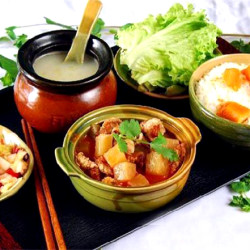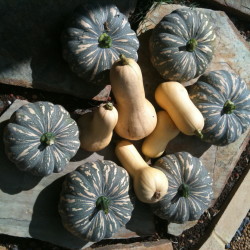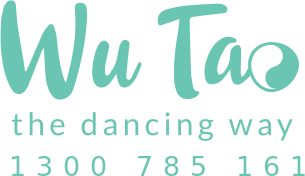Our blog
Daily inspiration + Information
Harmonise your Qi through Diet
 Traditional Chinese Medicine has a different approach to diet than many popular dietary disciplines currently touted in the western market place today. Personally, I prefer any approach that isn’t fanatical, hard-core or a ‘one size fits all’ . There are so many unique individuals on our planet and just as many ‘appropriate’ ways to suit. It’s important to find the dietary discipline that works for you as an individual.
Traditional Chinese Medicine has a different approach to diet than many popular dietary disciplines currently touted in the western market place today. Personally, I prefer any approach that isn’t fanatical, hard-core or a ‘one size fits all’ . There are so many unique individuals on our planet and just as many ‘appropriate’ ways to suit. It’s important to find the dietary discipline that works for you as an individual.
While I am not the best practitioner of a Traditional Chinese Medicine approach to nutrition, I have integrated some of it’s key practices into my daily life and they feel appropriate for my physical system. Over the next few months I will be sharing helpful information, recipes and ideas on nutrition that I hope will be useful to you.
Today let me start with a Traditional Chinese Medicine perspective on a daily diet plan and the reasons why this maintains a healthy body and mind.
“If no food is eaten for half a day, Qi is weakened,
if no food is eaten for a whole day, Qi is depleted.”
(Ling Shu Jing)
Traditional Chinese medicine maintains that human Qi originates with guQi, which literally means “Qi of grains.” Chinese medicine recognizes grains as the foundation of human vitality. Why? The taste of grains is generally sweet, and this flavor tonifies the Spleen and Stomach, which together are the organs responsible for transforming food Qi into post – natal Qi or true human vitality. They particularly favour rice but all other grains are also useful.
The wisdom of this grainbased diet style has been corroborated by the massive China Health Project, an ongoing study of current dietary patterns in China. This study has found that the health and nutritional status of the people of China is generally superior to that of the people of western industrialized nations. In particular, the incidence of heart disease, cancer, and other degenerative diseases is far lower in China than in the United States. From a Chinese medicine standpoint, these diseases are disorders of Blood and Qi.
A dietary practice that is composed primarily of whole grains may be considered one of the most important aspects for enhancement of one’s Qi. The principles of traditional Chinese medicine also suggest that eating in harmony with the energetic transformations manifested in the seasonal cycles of Nature are very important.
“in spring, one should eat more pungent and warm foods to stay in harmony with the upward movement of the season; in summer, one should eat more pungent and hot foods to stay in harmony with the outward movement of the season; in autumn, one should eat more sour and warm foods to stay in harmony with the downward movement of the season; in winter, one should eat more bitter and cold foods to stay in harmony with the inward movement of the season.”
Master Chinese herbalist ShiChen Li (15181593)
The movements of Nature that we observe in seasonal changes occur on a smaller scale every day, and throughout our life cycle. Our morning corresponds to infancy and spring, noon to adulthood and summer, evening to maturity and autumn, and midnight to death and winter. A daily dietary practice which goes with this Natural Flow enhances our personal experience of Qi just as struggling against a river’s flow merely wastes one’s energy.
Breakfast
Breakfast comes after we arise from our night time sleep. Morning is the springtime of the day. Traditional Chinese medicine suggests that the Stomach is the organ most active between 7:00 and 9:00 a.m., the time when we commonly consume breakfast. The Stomach likes warm and moist foods, and dislikes dry foods so to harmonize with the morning energy, it is best to take the advice of your grandmother and have warm porridge rather than dry toast or cold cereal.
Sugary sweet foods, including fruits, generally have a yin, condensing, cold energy, and this energy is just the opposite of what we need first thing in the morning. The cold and damp nature of sweets or fruit may be temporarily stimulating, but can put a damper on the digestive “fire” of the Spleen entirely, leaving it unable to transform more nourishing foods into Qi. For breakfast, oats, barley, millet, and rice are particularly suitable for porridge. If you can enjoy a savoury flavour to your porridge, add a little chopped chives or spring onion, or some pickled vegetables which stimulate the yang spring energy.
Lunch
The noon meal occurs in the middle, summertime of the day. At noon, as in the summer, the Sun’s energy is felt most strongly on Earth, and the Qi of Nature is expanding strongly outward. Since the noon meal is at the time of predominance of yangQi, this is the time that our yang digestive fire is strongest. Traditional herbal wisdom encourages us to eat more pungent and hot foods to harmonize with yang summer Qi.
Hot foods such as hot soups and hot whole grains are the ideal basis for a noon meal. This may seem unusual many of us who are used to eating cold sandwiches, salads, iced soft drinks, fruits and juices. Consider a vegetable soup in winter, and in summer a quinoa salad with capsicum, seasoned with the warming herbs of fresh basil and spring onions.
Since noon is also the time of day when the Heart is most active, according to traditional Chinese physiology, the salty flavor is important at the noon hearty meal.
Dinner
The evening meal occurs at the time of day corresponding to the autumn season, and preceeds the long winterlike night. The natural movement of Qi at this time of day is downward and inward. Qi becomes more yin and less yang.
Traditional Chinese medicine maintains that the Kidneys are the most active organs when many of us have dinner between 5:00 and 7:00 p.m. This is when the Kidneys restore our native vitality.
Sour, salty, and bitter foods have the condensing, moist, and cooler energies that characterize the night. Chinese medicine discourages large or frequent consumption of chilled or raw foods, as these tend to injure the Spleen and Stomach, dampening their fire. As salty, bitter, and some sour foods tend to have intrinsically cold energies, it is recommended that these be eaten in cooked form.
 Rounded vegetables such as onions, squashes, pumpkin and cabbages, have a condensing form, and root vegetables, small peas and pulses, and beans have a condensing and descending form. All of these foods combined with a favourite grain, can help us to condense and root our own energies for the night.
Rounded vegetables such as onions, squashes, pumpkin and cabbages, have a condensing form, and root vegetables, small peas and pulses, and beans have a condensing and descending form. All of these foods combined with a favourite grain, can help us to condense and root our own energies for the night.
Fruits and sweets also have the yin condensing and descending qualities and so the evening meal is the best time to enjoy a little bit of chocolate, cake or fresh fruit. Stay clear of ice-cream except as a very special treat as it is super sweet and cold. Not the best for your hard working spleen!
Next week I’ll be back with a nourishing and delicious grain recipe that has been keeping my children happy for years. Stay posted!
Have an awesomely happy day
Michelle
Wu Tao Dance
References:
Don Matesz, Eating in Harmony with Daily Energetics, Qi Journal 1992
